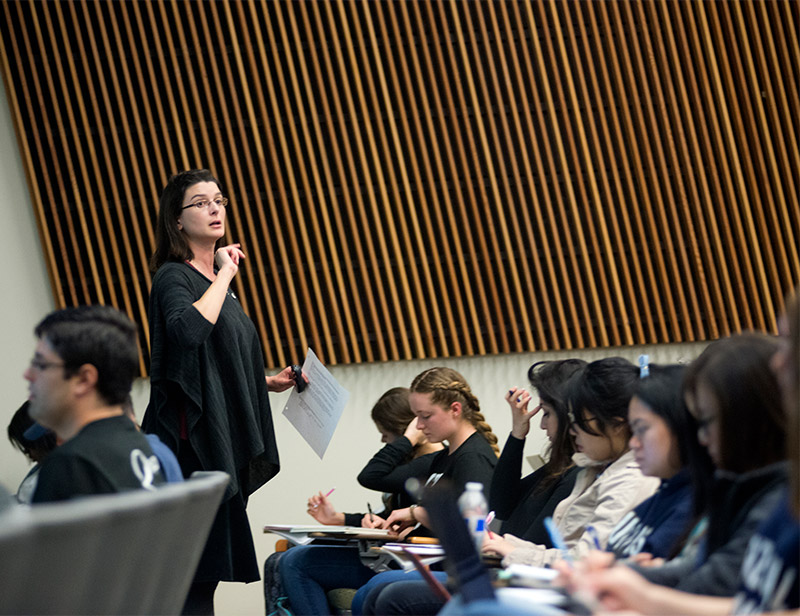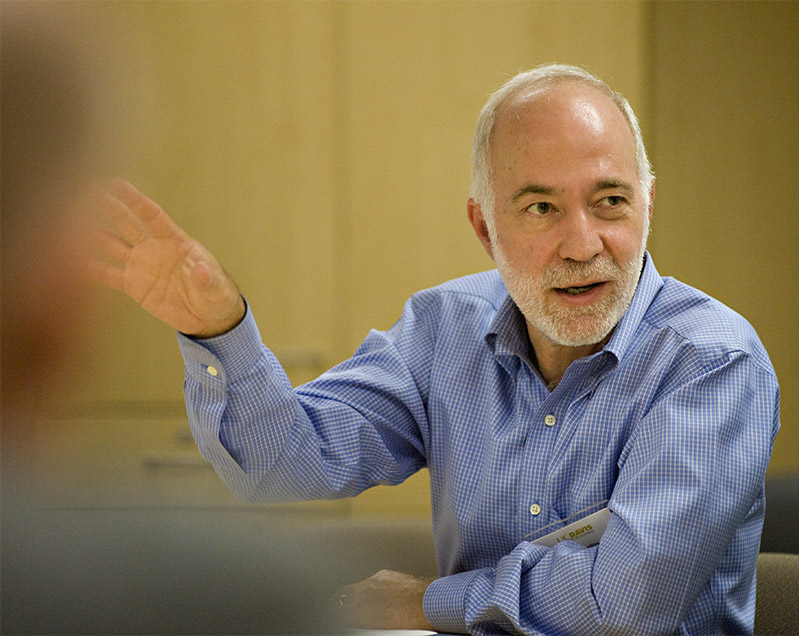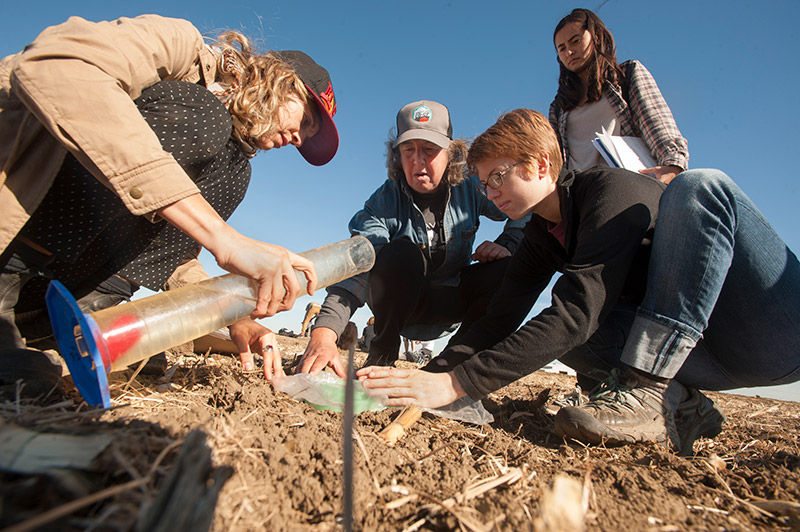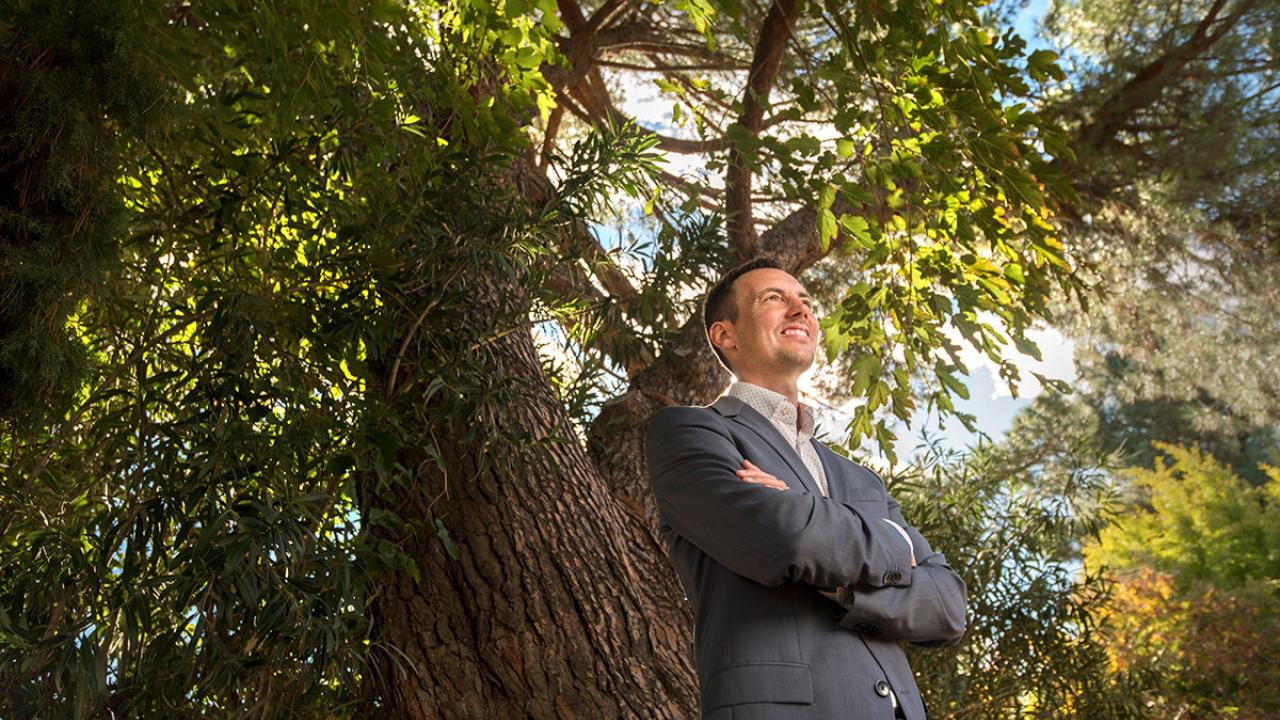UC Davis experts say President Donald Trump’s decision last week to withdraw from the Paris climate agreement isn’t what they wanted to see from a country they expect to be a global leader in environmental policy, but won’t be a huge setback in the fight against climate change.

“The withdrawal at this point is mostly symbolic,” said Tessa Hill, an associate professor of earth and planetary sciences, and associate director of the UC Davis Coastal and Marine Sciences Institute. “However, the symbolism itself is troubling — we want the U.S. to be a leader, and an innovator, in the green energy economy, and this move is a significant step in the wrong direction.”
James Bushnell, a professor of economics, called the move a diplomatic embarrassment, not an environmental one.
“The agreement was in effect a test that every country was supposed to pass, largely because each country got to write its own test,” he said, noting that the United States might still meet its goals for reducing greenhouse gas emissions because of technological advances and economic pressures. “Even if we do reduce our emissions, however, we will get little credit from the international community now and momentum for international cooperation on climate change will have been squandered.”
Mark Lubell, a professor of environmental science and policy, and director of the Center for Environmental Policy and Behavior, said the move weakens the country’s leadership on climate action.
“I think we are making some progress but I think this withdrawal from the Paris accord puts a big dent in that progress and moves us backward, especially at the national level, a lot,” he said on Capital Public Radio’s Insight a day after the announcement.

Dan Sperling, a professor of civil and environmental engineering, and director of the Institute of Transportation Studies, said withdrawing from the Paris climate agreement is likely to have little effect on efforts to make transportation more green.
“National regulations are in place through 2025 to reduce emissions from cars and trucks,” Sperling said. “It will be difficult to undo those. In addition, California and nine other states have adopted zero-emission vehicle requirements through 2025.”
Withdrawal could galvanize
But there may be a silver lining to the action: Withdrawing from the Paris agreement could spark more action toward environmentally friendly policies, the experts said.
'We Are Still In'
Interim Chancellor Ralph J. Hexter is among dozens of university leaders who joined more than 1,200 governors, states, businesses and investors to "declare that we will continue to support climate action to meet the Paris Agreement."
Design professor Michael Siminovitch, director of the California Lighting Technology Center, said Trump’s action “has sharpened the discourse on how to address climate change moving forward. … I see the efficiency community even more galvanized to action.”
Hill and Sperling both said an absence of federal leadership on climate action puts more pressure on states, cities, corporations and universities to act.
Ben Houlton, a professor of land, air and water resources, and director of the John Muir Institute of the Environment, calling the withdrawal “deeply disappointing,” said UC Davis would “continue to work with local governments, businesses, citizens and agencies to solve the climate challenge and create a higher quality of life for all people on the only planet we have.”
‘Science & Climate’
Long before Trump’s decision on the Paris climate agreement, UC Davis began building a website highlighting the university’s climate research, focusing on science, impacts and solutions — and you can see the site here. It will be updated regularly with news articles, feature stories, explanatory pages and more.

The “Science and Climate” site debuted with a story titled, “A Climate Change Solution Beneath Our Feet,” about Professor Kate Scow’s work as a microbial ecologist, “digging into the science of how healthy soils can not only create productive farmlands, but also store carbon in the ground, where it belongs, rather than in the atmosphere as carbon dioxide.”
The same story appeared recently as the first part of a sponsored-content series in The Washington Post. Research by Scow and others extended to mentions in The New York Times and local media outlets over the past week.
